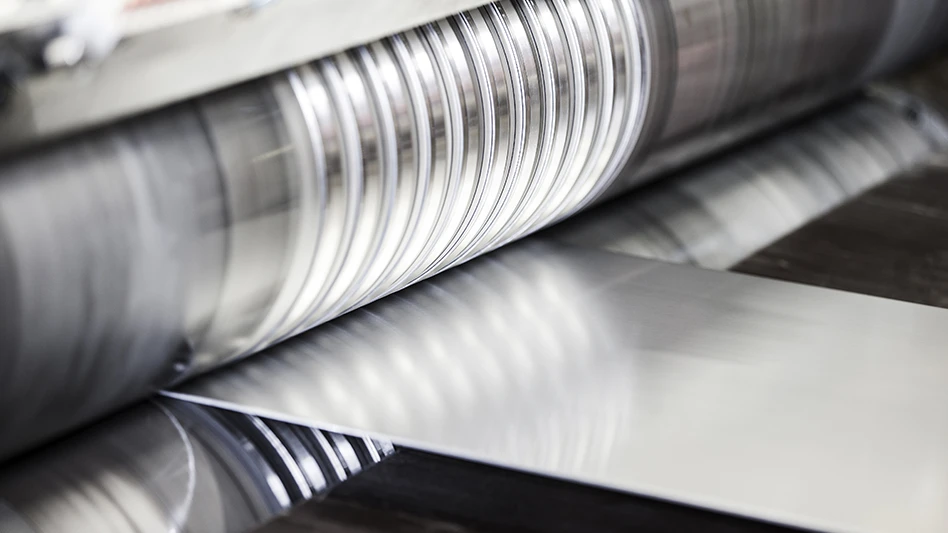
MetalX
Earlier this month, Australia-based steelmaker BlueScope announced that it entered into a binding agreement to buy the ferrous scrap recycling business of Waterloo, Indiana-based MetalX LLC. The steelmaker describes MetalX as “the leading supplier of scrap feed” to its Delta, Ohio, electric arc furnace (EAF) steel minimill, North Star BlueScope Steel.
The steelmaker will pay $240 million to acquire MetalX’s ferrous business. According to a news release from BlueScope, the transaction is expected to be completed by the end of this year.
Although this sale marks the end of the ferrous business for MetalX, Danny Rifkin, founder of MetalX, says the company plans to continue to grow its nonferrous business.
“BlueScope has agreed to buy our ferrous business, which would include all of the assets and facilities related to buying and selling of ferrous scrap. The people that have been in our ferrous organization are becoming BlueScope employees,” Rifkin says.
MetalX currently operates four facilities—one in Delta, which exclusively handles ferrous scrap; one in Waterloo, which handles ferrous and nonferrous scrap; one in Auburn, Indiana, which exclusively handles nonferrous scrap; and a small retail community recycling facility in Fort Wayne, Indiana. Rifkin says BlueScope will acquire the Delta and Waterloo facilities, and the nonferrous business from Waterloo will now transition to Auburn.
Increasingly, steel companies have been vertically integrating by acquiring scrap processors to secure ferrous scrap needed to feed their mills. Rifkin says he has noticed this trend growing for a while. His previous company, OmniSource, was acquired by Steel Dynamics Inc., with that deal closing in 2008.
“This trend is going to continue,” he says. “You think about it, it goes back to when we had OmniSource and the first deal with Steel Dynamics in 2007. That trend has been continuing. It’s really been accelerating over the last 15 years. As we look at all the new steel capacity that is coming online or announced and the fact that most of it is electric furnace melting, it has become more and more important for the steel producers to be able to have a secure supply of the scrap as a raw material."
He adds, “I think the smaller ferrous scrap operators, the more local or more regional operators, will always have a place when it comes to the collection of scrap, processing of scrap and ability to market scrap. But I see it challenging for companies in the ferrous scrap business to try to scale up to a larger position today as an independent because it’s difficult to compete, especially in the prime industrial world with the steel-mill-owned scrap companies for all kinds of reasons.”
Looking ahead, Rifkin says he sees a lot of opportunity for MetalX to grow its nonferrous business. The company currently handles more than 200 million pounds per year of nonferrous scrap.
“Our plan is to execute a growth strategy focused as a nonferrous company,” Rifkin says. “MetalX will no longer be in the ferrous business. We’re splitting the ferrous business out and continuing on as a nonferrous business."
He continues, “We have been working on developing a more extensive nonferrous strategy for some time. We see tremendous opportunity for the future in the nonferrous segment, especially related to copper and aluminum. So, as the world moves towards more electrification and lighter weight, and as the use of copper and aluminum becomes more prevalent in everything, we see that as an outstanding opportunity for long-term growth for the company.”
As part of MetalX’s nonferrous growth strategy, Rifkin says the company wants to expand its copper and aluminum wire chopping business. “We’re planning to double that business over the next year.”
Rifkin says the company also wants to grow its aluminum shredding and advanced separation technologies. He says, “Our primary thrust in aluminum is to be developing the applications for that technology and working with consumers in the extrusion and billet making segment as well as the primary sheet producers to continue to grow that segment of the business.”
Additionally, Rifkin says MetalX will also focus on aluminum melting, which he says is integral with processing aluminum scrap.
Rifkin concludes, “We’re very excited. My son, Neil, and I founded this company in 2012 and we’ve been at it again for nine years. We are committed to this industry and the future, and we’re really excited about the prospects as we look in this new direction. We’re able now to focus on one segment and think that will produce really, really meaningful results.”
Latest from Recycling Today
- Umicore forecasts 2025 profits in line with last year
- Lautenbach Recycling names business development manager
- Sebright Products partners with German waste management equipment company
- WasteExpo transitions to biennial format for enhanced experiences
- Study highlights progress, challenges in meeting PCR goals for packaging
- Washington legislature passes EPR bill
- PureCycle makes progress on use of PureFive resin in film trials
- New copper alloy achieves unprecedented high-temperature performance





